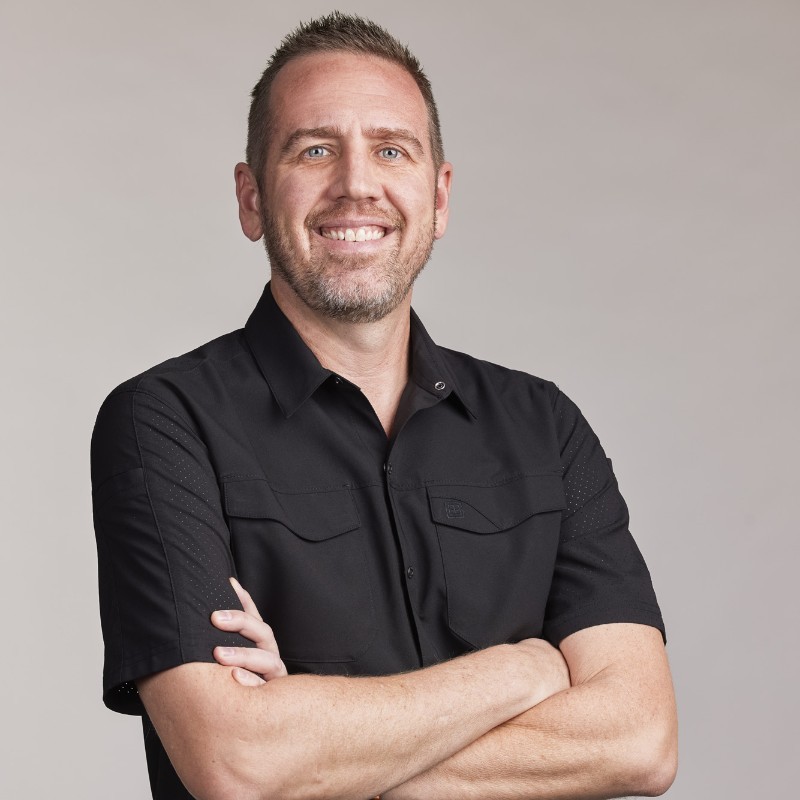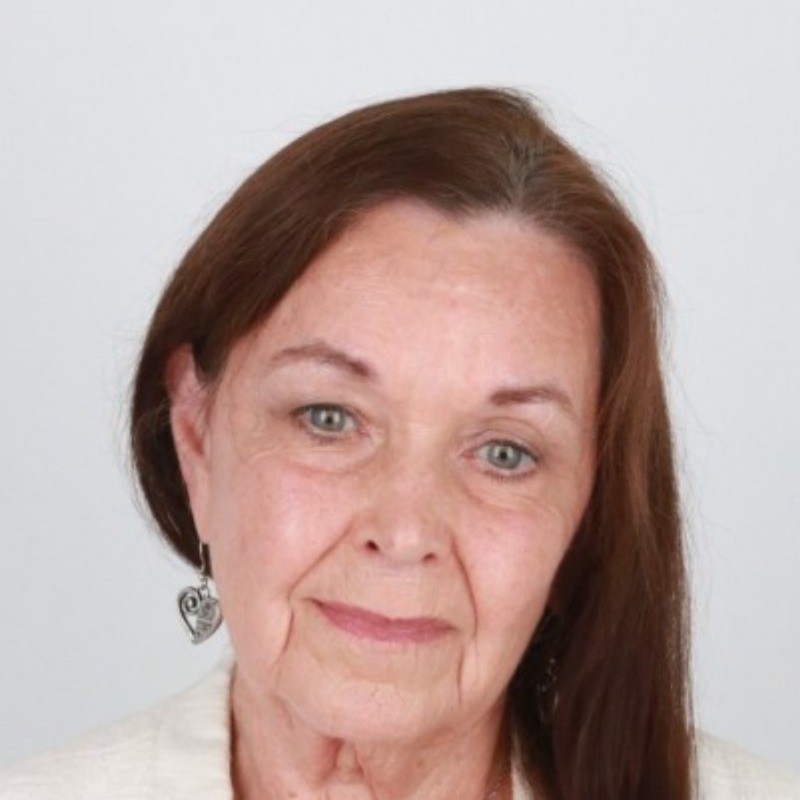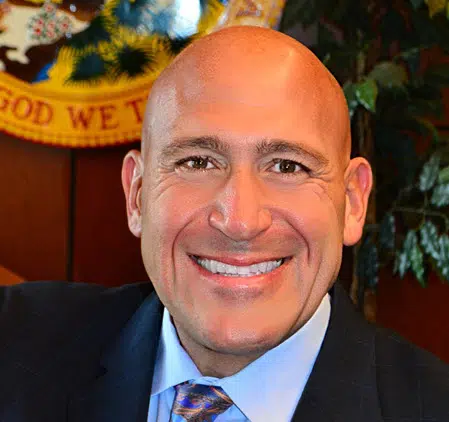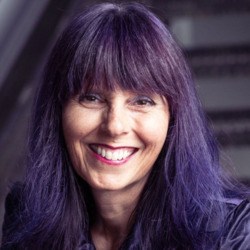
Suzanne Hanifin is the Founder and CEO of Acumen Executive Search, a boutique recruiting firm that helps organizations build better businesses from the inside out by finding the perfect hire. As an experienced matchmaker for candidates and companies, Suzanne thrives on making connections that last. In addition to her work at Acumen, she is also the Co-founder of Leaders and Executives Across Professions (LEAP) and a Member of Vistage and the Association for Corporate Growth (ACG).
Here’s a glimpse of what you’ll learn:
- Suzanne Hanifin’s experience starting Acumen after the birth of her second child
- The advantages of implementing effective systems at the beginning of your company’s growth
- Balancing creativity and systems in your business
- How onboarding systems can help you hire candidates based on culture fit versus skill set
- Why are some businesses hesitant to implement systems?
- How to utilize systems to grow and improve during difficult times, such as the current pandemic
- Suzanne’s advice to entrepreneurs: focus on the how
In this episode:
When should you start implementing systems into your business? While systemizing your operations may seem like a major investment when you’re just starting out, it is actually one of the best ways to future-proof your company. Just ask Suzanne Hanifin, who started and scaled her business through the birth of her second child, an economic recession, and now a global pandemic.
Suzanne’s journey to entrepreneurship is a unique one. After receiving positive feedback from a client, she decided to take the leap and start her own company only days after her second child was born. By putting effective systems in place as soon as possible, Suzanne was able to thrive and successfully improve her company during each external event and obstacle that came her way.
Tune in to this episode of the Systems Simplified podcast as Adi Klevit talks with Suzanne Hanifin, the Founder and CEO of Acumen Executive Search, about the value of systemizing your business from the start. Suzanne explains how she successfully grew her company during a recession, why systems are essential even with a small team, and how to create onboarding processes that improve your workplace culture. Stay tuned for more!
Resources mentioned in this episode:
- Adi Klevit on LinkedIn
- Business Success Consulting Group
- Suzanne Hanifin on LinkedIn
- Acumen Executive Search
- Vistage
Sponsor for this episode:
This episode is brought to you by Business Success Consulting Group.
At Business Success Consulting Group, we create custom processes and tailor-made management systems so businesses can thrive.
Businesses simply can’t survive without workable systems and well-documented processes. That’s why our team of experienced professionals takes care of it for you.
We provide business owners, entrepreneurs, and key executives with strategic implementation, process improvement and documentation, and long-lasting systems necessary to support business expansion.
So, what are you waiting for? Do yourself a favor, and cut the chaos out of your business.
Visit bizsuccesscg.com today or email info@bizsuccesscg.com to schedule a free consultation.
Transcription:
Adi: [00:00:00] Hello, Adi Klevit here, the host of systems simplified podcast, where we feature top founders, entrepreneurs, and thought leaders on systematizing businesses. And this episode is brought to you by business success consulting group in business, a business success consulting group. We help businesses by documenting their processes and procedures and creating custom management systems so they can thrive.
Suzanne, did you know that businesses need systems in order to actually thrive and grow and scale?
Suzanne: [00:00:37] Absolutely. They do. Yes.
Adi: [00:00:40] Yes. And in a second, I'm going to introduce you and you're going to you all about systems. So that's what we do here at business success consulting group. So check us out at bizsuccess.cg.com. That's BIZ success CG for consulting group .com. Or call us at (503) 662-2911. All right. And now it's my honor and pleasure to introduce our guest Suzanne Hannifin. So she's also a dear friend of mine.
Suzanne: [00:01:08] I'm a colleague and she
Adi: [00:01:10] is the founder and CEO of acumen, executive search.
Suzanne: [00:01:17] Thank you a D yeah, it is so nice to be here.
So we started an acumen back in 2007. And like you said, I'm the founder and CEO. We're a small boutique recruiting firm. We do all retained recruiting across the country and that actually across the. The world. So we have placed people in almost every continent now.
Adi: [00:01:40] Absolutely.
And you know, I know you're being, you're not totally sharing, but you know, you, you place CEOs in companies that if you mentioned the names, everybody will know about those companies.
So you definitely work with high profile companies and also startups
Suzanne: [00:01:55] right? Yeah. So I think our, our market is really, it's kind of three-fold, I would say definitely organizations that are scaling needing to, to increase their leadership. And and then of course we have our big, you know, organizations that, you know, continuously grow and change and then the startup world.
And we really focus in on the biotechnology space, the technology space and software.
Adi: [00:02:25] Awesome. Good. And just to mention, you know, we met through Vistage, we both Vistige members, so let's give a shout out here to Vistage in our visit chair on Merryman, who is actually, I think is the number one in the entire nation in terms of being a chair.
So we definitely enjoy being in that group. And let's start about, let's talk about. Your business and the systems that you implemented because Suzanne has, you'll have fantastic systems in your business. And that's what allowed you to be, to grow the business and be so successful. So let's start at the beginning.
How did you start acumen?
Suzanne: [00:03:04] Well, I think, I think like a lot of entrepreneurs You know, for me personally, I did not wake up one day and say, I'm going to be a business owner. I actually had a life change in 2007, which was a new baby. And and so I was thinking, you know, here I've come from this big international consulting I have.
You know, I fell into recruiting up in Seattle. And so years later here comes this second, second child of us. And so. Again, it wasn't this intentional, I'm going to start at acumen and we're going to grow to this size and we're going to do it. It was okay. Now what? And so I had one client who she's, she's a wonderful CEO, Paula who called me up when max, my, my middle son was nine days old and said, so have you started your own business yet?
And I was a little taken aback. He's nine days old and she said, we just bought a company and I need. This recruiting. And I thought to myself, okay, I can recruit on the side. I've been doing this for years. And I think it was max was about three months old when I hired my first employee. I think he was five and a half months old when, when I hired my second employee and it just grew.
And I think that. Again, like most entrepreneurs, you know, your business starts out being very reactionary and it was full of, Oh my God, gosh, what are we going to do? I need, you know, a CRM system. I need some ATS. I need to create all of this, but it's hard to take that step back and just say, you know, here, I've got all this business.
I, I'm not sure what to do with this. At the same time, making those, those decisions on systems and efficiencies and processes. So we really shot from the hip for the first year or two years. And then, you know, it's 2007. So by 2009, I think we all can recall what the economy was like. All of a sudden we had this slow down and it was such a great time for us to say, okay, we have these core clients, you know, we're going to be fine.
But let's really start looking at systems, processes efficiencies as a business owner, as you know, a D you know, there's two ways to drive, you know, revenue and gross profit. It's either sales, top line or efficiencies bottom line. And and it's being able to really look at that. Almost systematically like you, you know, your expertise is to say, let's really start documenting, what do we need?
What does that look? And then, you know, put it, implementing that into the, into your daily routine and your daily life.
Adi: [00:06:03] Absolutely. So, you know, it's a good point in terms of you have the top line to sales and then you have the bottom line. I mean, basically the efficiency, but, and tell me if you would notice that, I mean, if is that true for you that even in the sales, like you have a really good process that you take your clients through, right?
So you're very efficient. So obviously. It allows you to service more clients, but the way I see it is also, it allows you to create those amazing results that you create with your clients because you have that system and that their experience is really good. So then they refer others. So they come back to you and that also drives sales.
Suzanne: [00:06:40] Right? Oh, absolutely. Absolutely. And you know, in the introduction I called us a small boutique. We're very small, there's five of us. And and with that, I'm going to kind of put a human spin on this. Yes, we have these great systems and processes in place, but it also allows somebody to go on vacation.
And know that we have each other's back. We have a process in place and we follow our steps. We've actually trademarked a lot of our process because we do feel it is incredibly unique and very different. And and it starts, like you said, from the moment we talk to a potential client, how do we do our intake?
We have, you know, this, this incredibly detailed intake forms, we interview all stakeholders to get different perspectives. And then we build this customized strategy based on. Our clients' needs. And then again, at any point, any five of us can jump in at any time and really pick up where, where things got stopped or, or, you know life.
And and I think that really has helped us not only scale to where we are today, but it's also helps that consistency that our clients are getting the same thing. No matter if they talk to me, talk to Chris, talk to Molly, Karen. It doesn't matter. And I think that's really important to have that consistency and everybody's on the same page.
So expectations are clear. And and again, if it wasn't for this intentional pause of saying, let's set this up and document it, put it into practice. And, you know, we're, we're looking at adding more people this year to acumen it's helps with onboarding. I mean every piece of our business is helped through these processes and systems.
Adi: [00:08:51] Absolutely. You know what I hear from SA sometimes I hear from business owners that they're afraid to systematize because they feel it will take away the creativity, right. It will create it's almost like too corporate or too strict, but you know what I w my comeback to that is always, well, you know, you need to have.
A system and then you can create on top of it. Cause you have the human element that comes into place and after observed it with you and with your company, your culture is amazing, you know, and I know it starts with you, it starts with a tar, but it's also the people you surround yourself with. So. Can you speak a little bit to just, if we have business owners that are listening right now, and maybe they're more in the creative field or even recruiting for me, it's also creative because you have to understand the person in front of you.
Right? You have to understand the culture of the organization. You have to make sure you're finding the right match. So you can have, it's not just. Entering things into the computer, but it's really also you know, just being able to understand who you're working with and find the right match the solutions, as I said.
So can you speak a little bit to that point of creativity and systems?
Suzanne: [00:10:04] Absolutely. And so we've, we really do believe in that combination of the two. So yes, we do have these great intake forms and a solid built out CRM system, but we have a lot of white space and, and that I think helps us because you just don't want to ask a question because that one answer will lead to 20 other questions, but we also take this approach because you have to remember we're in the people business, but that it's not just.
A client. We also have a candidate. And so, because we work. In this, you know, fluid team environment, I may one day be working with client the next day I'm working with candidates. And so we tried to take, come from that perspective, what is the candidates wanting to know? And what does the client want to share?
And so you have this, like what we call the white space, the white space to have those conversations, and again, to ask them. Deeper questions based on their answers. And so I think that you can have a system again, these are the key questions we need to have answered, but you can do it in a way that you create your own white space, your own creativity, because you want things to be conversational.
We're not an order taking firm. We're a relationship firm, right? So again, we need to hear. What is not being said as well. If that makes
Adi: [00:11:39] sense. Since, you know, I heard from a client, she told me that by documenting the systems, they now can hire people that matched our culture, as opposed to having to look for those that have the experience because before they needed more.
The experience in terms of, or the knowledge of their particular systems, because they didn't have the time to train, but that the trade-off was that they didn't always match the cultures. So what you are saying is, okay, let's have the systems so we can put that aside. So now we train you, we know, you know how to move along the process, but now let's get people here that much to match the culture or have that people skills to really understand and build those relationships.
Right. So, That's basically what you were mentioned in that, in another words, when you want you to do differently, but it's basically the same concept of like, you know, the systems are there in order for you to actually put it's like the skeleton and then you put everything else on top of it. You have the bones, but now let's put, you know, the muscles and, and, you know, on the skin and everything else and then dress it prettily.
So then we can actually use it in order to Service our clients the best. So yeah, this is a very good point.
Suzanne: [00:12:53] We call it, you know, our guidelines, you know, they're, they're not hard, fast rules. They're guidelines.
Adi: [00:13:00] Yeah. Play book, you know, people call it the playbook. Right. So it just makes it easier. So that's, that's great.
Yeah.
Suzanne: [00:13:08] Anytime about onboarding again, we're in the same situation that you know, not only do we have this process, Narrowed down that we call it our nine step process, but each step. We can drill down and really look at those processes. And when you talk culture, you're talking our language because we truly believe that yes, you have to, the skill sets needed, but really it's that cultural fit.
And so, as I'm looking at bringing on another recruiter, or maybe even to you know, that's a huge growth going from five to seven, seven people. And if it wasn't for these processes, Knowing that okay. Here's how we're going to onboard. Everything is, is, you know, really listed out. We can then interview for cultural fit versus skillset.
And we hope to teach this to our clients as well, because it's not just about finding the person. That whole, how did they become part of your team and what what's the onboarding process? You know, it's not just filling out HR forms. It's really understanding each step. So then expectations are created.
You can measure success, you know, you can put in a lot more data once you have it listed out.
Adi: [00:14:34] Yeah, for sure. I agree. And also in terms of like the candidates being onboarded by the, by your clients, it makes a huge difference, right? When your clients have an onboarding system that
Suzanne: [00:14:46] works. Yeah, absolutely.
And it's so interesting because we can see it. You know, we're outsiders, but we, through our intake forms and, and our intake interviews, we really feel like we knew this organization, the culture, what works, what doesn't work, how they measure success, what the expectations are. And so now I'm trying to remember what, what my point of that was from what you said, but I think
Adi: [00:15:14] having an onboarding system for the clients, you know, so then when you put a candidate into an organization that you can see very clearly that onboarding system, it just makes it easier.
Suzanne: [00:15:24] Absolutely. And then the success. And so you look at their turnover rate. And how fast do people turn? I think it's a direct correlation to that onboarding. And again, having clear processes, clear procedures, clear expectations once again, how are we measuring success? What does success look like? And and we can really see the difference.
And, you know, again, we work with some really large organizations and then really small ones, and it really does not matter the size it has to do with, do they understand their business and how their business works?
Adi: [00:16:05] Right. Exactly. And also it's it's so with just the onboarding and then when the full onboarding with also the training, I mean, that's where, when you have, when the companies have a playbook, then it's probably easier.
Well, it's not probably, it's easier to onboard a candidate and train them for sure.
Suzanne: [00:16:22] Absolutely. Cause you know, I think most organizations spend so much money on their recruiting and retention. And it's, it's not rocket scientists, you know, it's, it's pretty simple to understand. It's the time you put upfront saves you so much time on the backend.
Yeah. And like you, your example of now let's interview and hire for culture. Not so much. Skillset is really the key for longevity of, of employees. Right.
Adi: [00:16:54] I agree. You know, I'm going to ask you a question. I don't know if you know the answer to it, but you know, we can, we can talk about it in terms of, you know, you have so much experience working with so many businesses, right.
Why, why do you think some businesses are resisting? Implementing systems. So not having their systems documented or created or the processes documented. What do you think are the points that are stopping business owners or founders entrepreneurs. And did you see any common denominator? Maybe the smaller one don't have it.
And that's what I don't scale. I mean, what's your experience with that?
Suzanne: [00:17:29] Well, I'm not sure if I can answer that, but I can answer it for me. So it took us a couple of years before we really started to. Invest, and it is an investment. There's a big cost to it. Whether it's human capital, you know, money for bringing in outsiders, consultants, what have you.
And so I think for us, you know, we started off like a shotgun, like, boom go. And so the first two years were so reactionary that you know, and reactive to our client needs that. Okay. Let's let's, you know, I know not everyone was a scramble and everyone was getting it done. Now let's do it now. Let's go, go, go, go, go.
And like I said, you know, almost like the stars aligned early for us to where, you know, the economy did a little slow down, you know, 2008, nine, 10, you know, and we were lucky enough, like I said, to have this moment to say, okay, let's pause here. And let's really look at again, our systems, our efficiencies, if, if a whole bunch of new businesses not coming in.
Again, top line, then let's really look at that bottom line. You affect that. And how can we change that? And so, you know, again, the other benefit that we did, which I think today it's almost every company is doing it. We started 100% on the cloud. We were very, very early on. We actually did a. A demo with, with three 65 when it was in beta, you know, it's again, 2007 is 14 years ago today.
I think people go, Oh yeah, we're on three 65 or teams, you know, AWS. And, but back then, people were really surprised by that and surprised that we said. You know, we're not technologists, we're too small. We can't have, you know, servers and a whole bunch of technology. So I think those two things happened that we were already prepared and very technology focused.
From the very beginning. And then and then having that pause. And I think when I talked to businesses, as we were coming out of this, COVID, it's those ones who actually paused and did some internal evaluations during this time, you know, it's coming out of this so much stronger and so much better prepared.
Because I'll say this we're busier today than we were in 2007. You know, again, when people are looking to hire to grow to scale, to change, to pivot, they're going to need people. And so again, it's those organizations that have taken that time to make that internal investment are coming out the winners.
For sure.
Adi: [00:20:33] You know, it's a very good point. And that's what I see as well, is that ability to take the time because production will always take. Priority, right. Or at least in the mind of the founder, the entrepreneur, you know, the, it just let's produce, produce, produce because many businesses, you know, basically when they, at least when I, my experience that we work with businesses that are very busy because they want to they're scaling.
That's why they bring us on. Right. So in the middle of, of. They're busy. When do they find a time to actually stop and systematized? So to your point, you had some external events in 2007 and some businesses had external events. I mean, we all experienced the external event of the, of COVID, but in terms of some of them were super busy, even more busy than usual.
And some of them slow down. So you had that external event where you could actually, you can actually systematize or you can stop and then figure out, okay, this is what I need to do and organize. So you can have more of the production, but for those businesses that haven't slowed down. Right. Or they don't, they, they have to create it artificially, not to slow down by any means, but decide that it's important enough.
So they create that. Artificial. Okay. Now we need to organize. And how do we do that? And as you said, you know, it, it will take resources. It might take allocation of resources to do that. Bring an external consultant, invest in a system. But if the trade-off is, if you don't do that, You're not going to come out of that stronger, or you're not going to continue to grow because at some point you're going to reach a plateau and you won't be able to push through that without those systems.
So I think it's a very good point. So it's, it'll, you'll have that. You know, you make something that is not an opportunity into an opportunity like you did, right? So the recession in 2007, you made it as an option. You took it as an opportunity. Some businesses doing COVID can take it as an opportunity.
And if you don't have that, you still continuing full steam ahead. Create that opportunity by deciding to do that. I mean, that's what I would, that's what I say to businesses are they, they decide, okay, we can't continue like that anymore. Let's. Let's do it.
Suzanne: [00:22:51] Yeah. And when we started, and like I said, for the first two years, we've really felt like it was, you know, the wild, wild West.
We were making things up. We were, again, every, every search was so new that. It, it was exhausting that, that you can't, you know you know, internally we say ride the wave, let's what? Right. Ride this out. Let's ride the wave. And, but if you going that fast and everything is, is reactionary and, and, you know, reactive.
It's so hard to finally say, okay, enough, because we see it on the opposite end. People want to leave their jobs because they're burnt out. You know, kind of are not seeing that clear path, that clear direction, you know? Yes, we're busy. We're going at, you know, at some point it becomes unhealthy to your culture and then you have to look long-term and just say, Okay.
If I lose, you know, Bob, who's my ops person, what does that mean? And, or, you know, Susie might my sales person, you know, you've got to slow down and kind of say. Right now, this is great because we have all this business we're going, but how sustainable is that? Is that realistic? And what type of culture and reputation are you creating for this longterm?
I don't think any of us started a business to say, I'm going to make all this money and get out in one year. You know, we tend to have this longer. Longer vision of, wow, I love what I'm doing. I want to do this for the rest of my career.
Adi: [00:24:40] Absolutely. Absolutely. It's the legacy that you leave behind and it's the different, you know, you are the one who said to me that, you know, people don't leave their jobs because of compensation.
They live because other business, right. And. What you just said is so true in terms of that's what I see. Like clients come to us where they're afraid they're gonna lose their top employees, or if they, even if they have the But if it might happen that they will lose that employee, you know, then they want to document the knowledge because they realize how vulnerable they are.
Right. In terms of like, you know, their knowledge is with sustain, which is contained with one person. And then if they live, then what, but we don't even want to get there because. That is, that is part of your culture. You want to make sure that you're also, you don't burn out your people and you don't exhaust yourself.
So it's an excellent point.
Suzanne: [00:25:30] And then, so we we've talked about this scale and this, this busy-ness, you know, th there's a huge trend and you look at our population and you'll understand why people wanting to exit their business. And so here we been working with a lot of organizations to hire their new CEO or general manager or whatever title you want to give this person and have those founders stepped back.
And, and again, when you, you know, look at their processes and systems, the ones that are really Welly well-defined and documented. They always get a bigger, bigger return. And so again, because now they're, they're going to people's, you know, looking for that cultural fit or looking for, to take them to the next step versus we need to fix this.
And for those organizations that want to sell, I can tell you, you know, again, coming out of the finance world and M and a. You know, we looked at processes and systems and that played into a key as, as well as the leadership team. How well can that organization run without that founder? And again, you're not going to get the return on.
Your investment of umpteen years of working, growing this business, if things are not properly documented, systematized, automated as much as possible. And yeah, so I think it's important at the beginning on the scale-up side. And then also on the exit side.
Adi: [00:27:09] Absolutely. Absolutely. Yeah. And I see it all the time.
Absolutely. Suzanne, this is amazing your information that you're sharing with us. I'm sure it's inspiring others to, if they're not happy either it is started on business to start a business. And if they are there in the midst of. Having like the production go, go, go to actually organize systematize because it's definitely, it makes a huge difference.
So that's
Suzanne: [00:27:38] great. So, yeah. And, and again, if there's one piece of advice I would give, give any entrepreneur. It's really, to look at your business and really have a very clear, here's not only what we do, but how we do it. And I think that's how we have grown to differentiate ourselves too. You know, there's a lot of recruiters and search firms and out there, but we're very clear on how we do it.
Lends to our successes and, you know, we have incredible retention rate. We have incredible repeat business and referral business, and it's, I give it almost all the credit to what you know, that early work on. How do we build out the processes and really identify how we differentiate ourselves. Absolutely.
Adi: [00:28:33] And I would also say just by knowing you for now almost five years, it's also, it's your vision. You're such a visionary and you know, very, you know, it's, it's your, it's your ability to think strategically. And I, I see why you're so successful and why you are very good at what you do and placing CEO was, and basically the top management and leaders of companies is because you can see the big picture and you see what needs to be done.
And you approach it in a very analytical and strategic manner. So that's that also, it's a great contributor to that. And then that's one of the things you saw is that you need those systems. And I'm sure that even if there was no recession in 2007, you would have figured out how to put the systems in place because otherwise you wouldn't have gotten to where you are.
So, but things just, you know, that's, that's one, another thing is like, you know, you see the opportunity and you take advantage of it, you know, instead of making it into. You know, into something that's going, can actually collapse the business. So crash the business, you took it, you made it into a great opportunity to expand.
So that's definitely the hat is off to you for that. So that's great.
Suzanne: [00:29:45] Yeah. Well, and I will say, and, and I think it needs to be said I did not do it alone. You know, a, I have incredible employees and B I have an incredible. You know, resources to tap and you're one of them. Absolutely.
Adi: [00:30:04] Right. I mean, that's, that's absolutely, I know that.
And I. I feel the same about you. You're such a resource for me and we bounce ideas off each other and it's, it's great. So, so happy to have you here. Thank you so much for being part of my podcast. And before we end off, I would like you to tell the listeners how they can reach, how they can find you.
Absolutely.
Suzanne: [00:30:28] Thank you for that. A D so again, it's Suzanne and the company is acumen executive search. So it's www acumen, executive search.com. Reach out to us. We'd love to have a conversation and see if we can help.
Adi: [00:30:43] Excellent. All right. Thank you, Suzanne. Thank you.

















